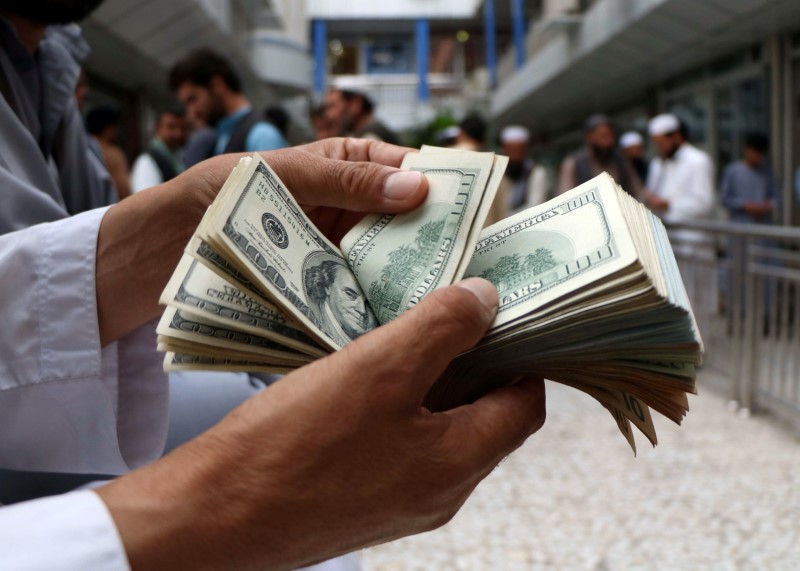By Tom Westbrook
SINGAPORE (Reuters) – The dollar began the last quarter of 2021 near its highest levels of the year and headed for its best week since June, as currency markets braced for U.S. interest rates to rise before those of major peers.
The euro slipped 0.1% early on Friday to $1.1572 and has fallen 1.3% this week, tumbling through major support around $1.16 to touch its lowest levels since July 2020.
The yen is down 0.6% for the week and twice as much in a fortnight as higher U.S. Treasury yields have drawn flows out of the Japanese yen into dollars. U.S. Treasury yields have surged on growing market expectations of U.S. tapering by year-end and rate hikes in 2022. [US/]
The yen bounced from a 19-month low of 112.08 per dollar on Thursday as yields settled, last trading at 111.41 per dollar. The dollar index stood at 94.327, having gained 1.1% so far this week, the largest weekly rise since late June.
A Federal Reserve meeting last week reinforced expectations for asset purchase tapering beginning this year and rate hikes starting in 2022 or early in 2023.
“As long as markets remain confident that the U.S. is going to start tightening monetary policy within a reasonable timeframe, the dollar should remain well supported and eventually rise 5-10% from current levels,” said Societe Generale (OTC:SCGLY) strategist Kit Juckes.
“The prospect of the European Central Bank keeping rates below zero while the Fed hikes should keep euro/dollar in the post-2014 range, with a centre of gravity around $1.12-1.16,” he said.
Commodity currencies made a bounce on the dollar on Thursday following a Bloomberg report which said China had ordered energy companies to secure supplies for the winter at all costs, citing unnamed people familiar with the matter.
Beijing is scrambling to deliver more coal to utilities to restore supply amid a power crunch that has unsettled markets due to the likely hit to economic growth.
The Australian dollar rose 0.7% overnight but that was hardly enough to offset a slide in the quarter as prices for Australia’s major export, iron ore, fell. The Aussie slumped 3.6% in the third quarter – the worst performance of any G10 currency against the dollar.
The Aussie hit one-month lows earlier this week and was last just above those levels at $0.7222. The New Zealand dollar also lifted from a month-low on Thursday and last sat at $0.6892. [AUD/]
Central banks in both countries meet next week, with the Reserve Bank of New Zealand expected to hike rates.
Sterling was also an underperformer last quarter, dropping 2.5%, and looks set to log its worst week in more than a month weighed by worries about a hawkish sounding central bank in spite of growing supply chain problems. [GBP/]
Sterling traded just above a 9-month low at $1.3445.
Markets in Hong Kong and China are closed on Friday. Later in the day, traders are awaiting U.S. personal spending and core consumption deflator data and nervously watching for any progress on the debate over raising the U.S. debt ceiling.
A deadline for authorising extra Treasury borrowing looms in mid-October.



